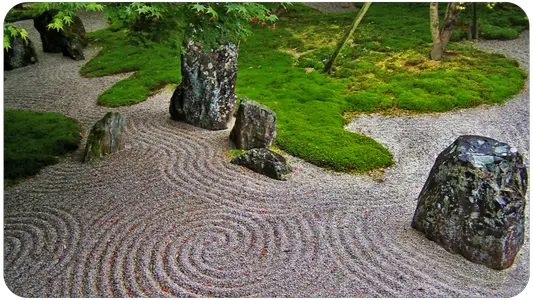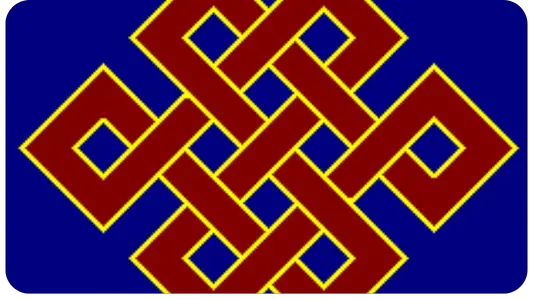Siddhi (devanāgarī: सिद्धि) is a Sanskrit term meaning "accomplishment," "perfection," or "success, " in Tibetan ngödrup (Tibetan: དངོས་གྲུབ, Wylie: dngos grub). In yoga, it refers to a supernatural power.
Traditionally, Indian yogic literature mentions that the yogi or siddha would obtain siddhi either through concentration and contemplation, combining dhāraṇā, dhyāna, and samādhi (saṃyama) or spontaneously as the Kuṇḍalinī, moving up the spine, would activate certain chakras. There are thus siddhi divided into eight major or canonical siddhi (aṣṭasiddhi), nine median and eighteen minor.
Siddhi in Hinduism
Yoga of Patañjali
In Vyāsa's commentaries (Yogasūtrabhāṣya or Yogabhāṣya)on the Vibhūti pāda chapter of Patañjali's Yoga Sūtra are mentioned and explained eight major siddhi which are
:
aṇimā: to assume a minute form or to reduce the body into the most tenuous atoms ;
laghimā: to become as light as a feather;
mahimā: to become immense;
prāpti: supraperception and ability to get what one wants;
prākāmya: to accomplish anything;
vaśitva: irresistible will;
īśitva: divine supremacy;
kāmāvasāyitā: the power to subdue one's passions.
In addition, the Yogasūtra mention the following six secondary siddhi:
prātibha: clairvoyance;
śrāvaṇa: ability to hear divine sounds ;
vedana: ability to feel divine touches;
ādarśa: ability to perceive divine forms;
āsvāda: ability to taste the divine flavor;
vārttā: ability to smell the divine fragrance.
In the fourth chapter entitled "Kaivalya pāda" of the Yogasūtra, Patañjali gives five kinds of origin to the siddhis:
janma: from birth;
auṣadhi: through plants;
mantra: through mantras;
tapas: by tapas (asceticism);
samādhi: by samādhi.
According to Patanjali's Yoga-sutra, siddhi are all derived from some ascetic effort (siddhi do not come by chance), but take away from the primary goal of yoga, which is to attain nirvana, by trapping the yogin in the condition of a magician, a shaman, instead of delivering him: ". These powers are obstacles to samâdhi when they are externalized. (Yoga-sutra of Patanjali)
Siddhi and shivaism
Nine median Siddhi
kaamaroopa : to change form ;
manojava : to be present at any place (ubiquity);
Siddhi in Buddhism
Iddhi (from Pali ijjhati, Sanskrit: riddhi, attached to the root ardh-, to prosper) are supranormal psychic powers that can result from samādhi.
The Pali canon cites the following powers: projection of the mind into multiple images of oneself; invisibility; the power to pass through solid obstacles (walls, mountains); the power to penetrate the earth as if it were water; the power to walk on water; the power to fly in the air; the power to "touch the sun and the moon"; the power to master one's body "up to the world of Brahma."
The iddhi are among the six abhiñña (supernormal knowledge), the other five being divine hearing, penetration of the mind of others, recollection of past existences, divine eye and extinction of citta purulence (asavakkhaya), which is the only supramundane power (lokuttara).
All other powers are considered dangerous and do not even testify to any metaphysical realization (a certain number of iddhis, the "puthujja-nika-iddhi", are accessible without any degree of awakening, Devadatta would have been an example); moreover, the Vinaya considers their exhibition by monks as a fault (dukkata).
Siddhi as obstacles or as perfections
Commentators on the Yoga Sūtra attributed to Patañjali explain that these siddhi should not be sought for their own sake, as they might create attachment and prevent kaivalya, deliverance. The Yoga-tattva Upanishad warns, "The yogin who constantly practices yoga obtains the power of levitation.
The wise yogin should then think that these powers are great obstacles to the attainment of yoga, and he should never take pleasure in them. The king of yogins should never use his powers in front of anyone. He must live in the world as a fool, a fool, a deaf man, in order to keep his powers hidden. "
According to some commentators on the Yoga Sūtra, siddhi are the perfections of the state of spiritual awakening (vyutthāna) but represent obstacles to the state of Samādhi, and do not give them any importance in attaining liberation.
These draw attention not only to the danger of exhibiting siddhi, but to the risk they pose to the one who possesses them.
Comments of Indian spiritual masters on siddhi
Several notable gurus of India have addressed the topic of siddhi or recounted the prowess of siddha (those who master siddhi):
Swami Vivekananda†, Rāmakrishna's best-known disciple, and one of the first to go to the West, comments on the Yoga Sūtra: "There are certain sacred words called mantra, which, repeated under proper conditions, have the ability to provide these extraordinary powers.
We live surrounded by so many miracles, day and night, without our thinking about it. There is no limit to the power of man, the power of words, and the power of the mind. "
Swami Shivananda†, one of the best-known yoga teachers of the 1950s, comments, "Most of the 8 major siddhi are not accessible in the present age, the Kali Yuga, because the bodies and minds of the vast majority of individuals are not ready for it.
However, even today there are Siddhas who have the power to perform certain siddhi. When people approach them to ask them to do this or that, they hide or say, usually, "I don't know.
They are not very specific about these siddhi. Their purpose is to ignore them as unreal and to aspire to the highest. They are the only true yogis. Many are able to use certain powers and do not know how they are able to do it.
About the beings who would have siddhi mastery, Ramana Maharshi† said, "The glory of the Siddha is beyond imagination. They are the equals of Siva. In truth, they are the very forms of Siva. They have the power to answer any prayer. "
When asked about the first verse of Vibhūti pāda of the Yoga Sūtra, Swami Muktananda†, founder of Siddha Yoga explains, "The siddhi one possesses at birth are the result of efforts made in a previous life. Siddha's are also sometimes born endowed with all powers.
My Baba, for example, was a born Siddha... There is also a siddhi that is obtained by repeating a mantra... When the mantra is repeated properly, it descends from the tongue to the throat, from the throat to the heart and from the heart to the navel. At that moment the powers are released.
There are also siddhi that are obtained through plants, but they are ordinary, they do not last. The siddhi obtained through the practice of austerities are much more valuable.
The fifth source of siddhi is the awakening of the Kundalinî by the grace of the Guru. When Kundalinî rises to meet Shiva in the sahasrar, a very great siddhi develops.
In 1977, Maharishi Mahesh Yogi†, sometimes referred to as the "Guru of the Beatles," gave his interpretation of the siddhi from which he devised the (TM-Sidhi) program he began teaching: "The practice of siddhi, which in the days when ignorance prevailed were called superhuman powers, is not something superhuman.
It is all part of the normal range of human abilities - managing the whole of cosmic life is within the reach of one's true nature, for it is the same nature. The gardener, in tending to the sap, is tending not only to the pink of the flower, but also to the green of the leaves, the stem and all the parts of the flower.
It is thus by acting on our own nature that we act on the nature of all things, on the all-powerful nature. The application of siddhi has given us a very practical philosophy. Wisdom is a much more powerful power than the powers developed by the siddhi.
The most powerful field is that of pure knowledge, not that of action. This is the philosophy that we bring to the world today. Man is successful not because of what he does but because of what he is.
Siddhi and science
Dean Radin classifies siddhi into three categories. First, those that fall under psychosomatic control (observable in fakirs, for example). Then, those that can be classified as clairvoyance or extrasensory perception. Finally, the siddhi that can be grouped in the category related to psychokinesis.
For the neuroscientist Mario Beauregard, materialist theories are not able to solve the problem of the mind and the brain. Research on ESP and psychokinesis may change the question of where the brain ends and consciousness begins.





